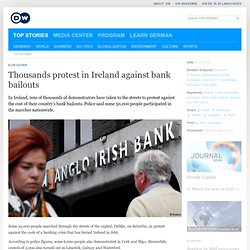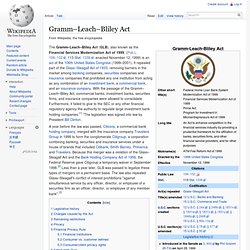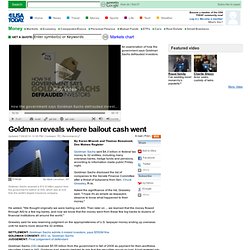

Thousands protest in Ireland against bank bailouts. Some 25,000 people marched through the streets of the capital, Dublin, on Saturday, in protest against the costs of a banking crisis that has buried Ireland in debt.

According to police figures, some 6,000 people also demonstrated in Cork and Sligo. Meanwhile, crowds of 2,000 also turned out in Limerick, Galway and Waterford. The Irish Congress of Trade Unions estimated that some 110,000 people demonstrated nationwide. The ICTU, which represents nearly a fifth of Ireland's 3.1 million person electorate, had organized the demonstrations under the slogan "Lift the Burden. " Trade unions skeptical of ECB deal On Thursday, Irish Prime Minister Enda Kenny had clinched a long-awaited deal with the European Central Bank (ECB), which eased a 48-billion-euro ($64 billion) debt burden from the bailout of Anglo Irish Bank.
The deal stretches Ireland's payments out over 40 years and cuts the country's borrowing needs by 20 billion euros over the next decade. Slk/ch (AP, Reuters) Gramm–Leach–Bliley Act. A year before the law was passed, Citicorp, a commercial bank holding company, merged with the insurance company Travelers Group in 1998 to form the conglomerate Citigroup, a corporation combining banking, securities and insurance services under a house of brands that included Citibank, Smith Barney, Primerica, and Travelers.

Because this merger was a violation of the Glass–Steagall Act and the Bank Holding Company Act of 1956, the Federal Reserve gave Citigroup a temporary waiver in September 1998.[2] Less than a year later, GLB was passed to legalize these types of mergers on a permanent basis. The law also repealed Glass–Steagall's conflict of interest prohibitions "against simultaneous service by any officer, director, or employee of a securities firm as an officer, director, or employee of any member bank".[3] Legislative history[edit] Final Congressional vote by chamber and party, November 4, 1999 Changes caused by the Act[edit] Remaining restrictions[edit] Privacy[edit]
Show Me the TARP Money . NOW on PBS.
Goldman reveals where bailout cash went. By Karen Mracek and Thomas Beaumont, Des Moines Register Goldman Sachs sent $4.3 billion in federal tax money to 32 entities, including many overseas banks, hedge funds and pensions, according to information made public Friday night.

Goldman Sachs disclosed the list of companies to the Senate Finance Committee after a threat of subpoena from Sen. Chuck Grassley, R-Ia. Asked the significance of the list, Grassley said, "I hope it's as simple as taxpayers deserve to know what happened to their money. " He added, "We thought originally we were bailing out AIG.
Grassley said he was reserving judgment on the appropriateness of U.S. taxpayer money ending up overseas until he learns more about the 32 entities. Goldman Sachs (GS) received $5.55 billion from the government in fall of 2008 as payment for then-worthless securities it held in AIG. Overall, Goldman Sachs received a $12.9 billion payout from the government's bailout of AIG, which was at one time the world's largest insurance company. U.S.